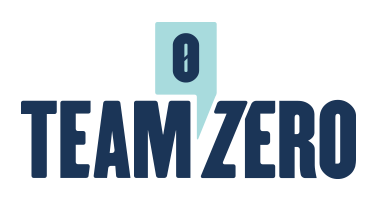
How to Report: Non-Mandated Reporters
If we don’t act to protect the most vulnerable among us, who will?
SPEAK UP FOR CHILDREN
Whenever a child discloses child sexual abuse of any form to you, you discover any form of child sexual abuse yourself, or you see or hear something that is concerning or troubling, giving you suspicion that child sexual abuse may be happening, it is imperative that you make a report.
It is always best to err on the side of caution and to report anything you might suspect. There is no penalty for making a report in good faith and it is the responsibility of Child Protective Services to determine what actions should follow.
What to do
Collect your thoughts. Take a brief moment to gather some basic data, such as:
- Name, date of birth (or approximate age), race, and gender, for all adults and children involved
- Addresses or another means to locate the subjects of the report, including current location
- Information regarding disabilities and/or limitations of the victims (especially for vulnerable adult victims)
- Relationship of the alleged perpetrator to the child or adult victim(s)
- Other relevant information that would expedite an investigation, such as directions to the victim (especially in rural areas) and potential risks to the investigator
Call today. Make a report any time, day or night, by calling 1-855-444-3911. You will reach the Centralized Intake Line operated by the Michigan Department of Health and Human Services (MDHHS). A staff member will assist you in making a report.
Answer to the best of your ability. You will be asked a series of questions regarding your concerns. Remember, you do not have to be an expert in child sexual abuse to make a report. Just doing your best will make a difference.
Focus on what you know. Avoid detouring into what you think should be done or offering opinions regarding the people involved. Stick to what is factually known and what you have personally observed or suspect.
You are asking for help. When you make a report, you are simply asking for a professional service to be done. MDHHS will make the appropriate decisions and take next steps from there.
An average call takes just 15 minutes to complete and you must call immediately when you are informed of or have suspicions of abuse. You may give your name or make an anonymous report – either way you are helping to protect that child or children.
How do I know it’s sexual abuse?
Child sexual abuse involves any sexual activity with a child where consent is not or cannot be given, regardless of whether there is deception or the child understands the sexual nature of the activity. This includes:
- All sexual contact between an adult and a child.
- Sexual contact that is accomplished by force or threat of force, regardless of the age of the participants.
- Sexual contact between an older and a younger child if there is a significant disparity in age, development, or size, rendering the younger child incapable of giving informed consent.
- Any intentional touching/contact that can be reasonably construed as being for the purpose of sexual arousal, gratification, or any other improper purpose.
- Sexual penetration.
- Non-contact sexual acts such as exposure or voyeurism.
- Accosting, soliciting, or enticing a child to commit, or attempt to commit, an act of sexual contact or penetration, including prostitution.
- The discovery of child pornography.
Every situation is unique, but these are some of the types of calls that are made on a daily basis:
- A caller reports that a child disclosed that they were sexually abused by a family member or acquaintance.
- A caller reports that there is suspicious behavior on the part of a neighbor where children go to play or spend time.
- A caller reports that they’ve discovered child pornography on a computer or smartphone. (THIS IS A CRIME and indicates that the person in possession of the images is a predator.)
Do I need proof before I call?
No. Most child sexual abuse is not witnessed, and no one expects you to be the investigator. Ask only open-ended questions if and when a child discloses to you such as, “What happened next?” and “Can you tell me more?”
Can I report my suspicions about someone or about an organization where abuse may be occurring?
Yes. Adults often experience a “gut feeling” that perhaps things are not safe or appropriate when abuse is occurring. It is important to trust that instinct and think about the behavior that caused those feelings in the first place when reporting.
What happens after I make a report?
Every report is unique and when a report is made, the investigating party determines next steps. In the Grand Traverse Region, child protection and law enforcement have the option of using the Traverse Bay Children’s Advocacy Center to assist in the investigation and to provide follow-up services.
Thank you for reporting
Nationally, one in 10 children is sexually abused before their 18th birthday. Working together, we can get to…zero.
